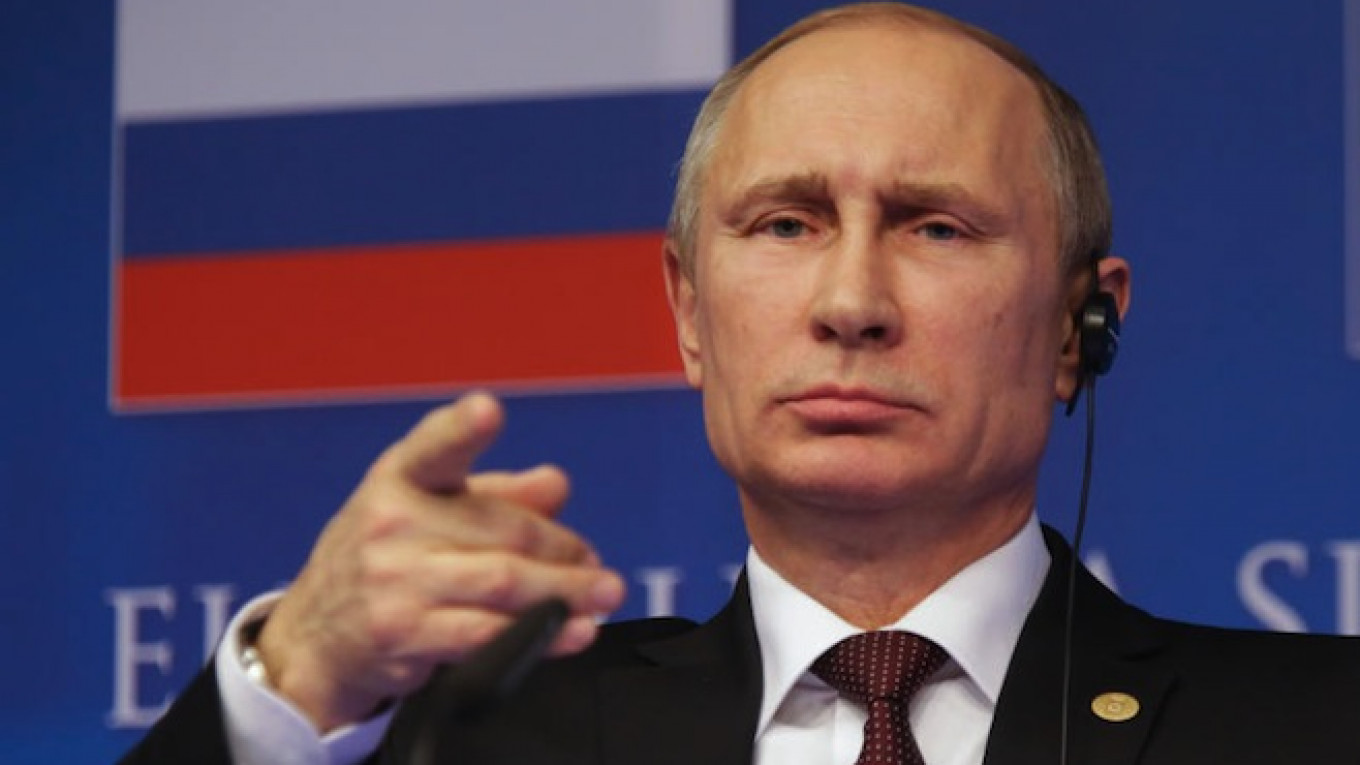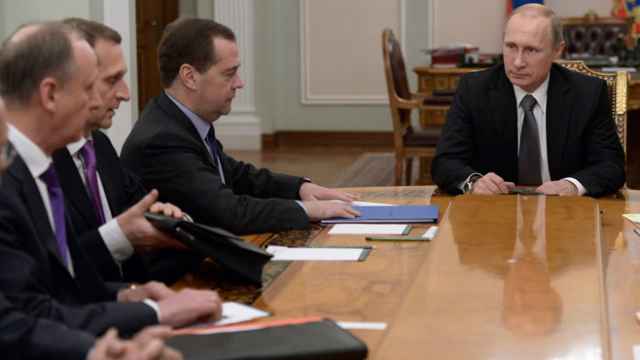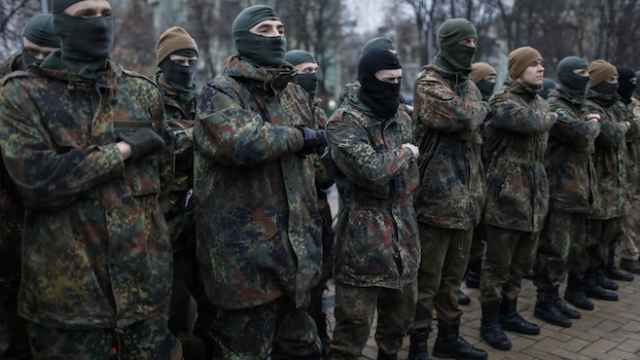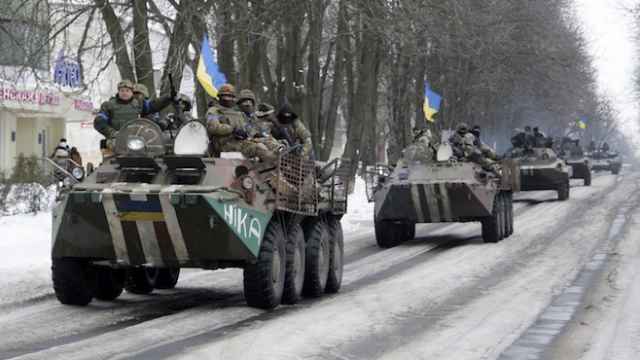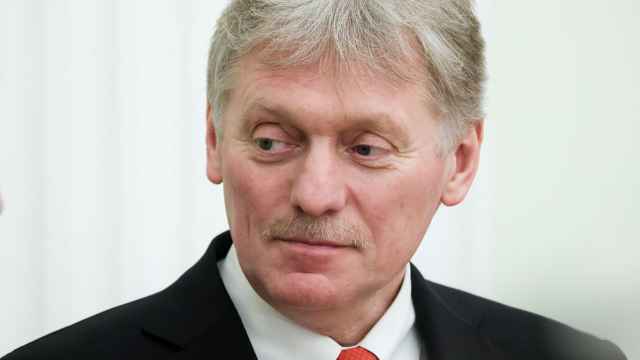Russian President Vladimir Putin blamed "criminal orders" by Ukrainian leaders on Friday for a surge in fighting in east Ukraine, and Russian-backed separatists struck a bellicose tone in ruling out seeking more peace talks.
Putin's remarks, and the comments by the separatists' main leader, signaled a hardening of positions in a conflict which the UN human rights office said had killed more than 5,000 people, including 262 in the last nine days.
Despite international calls for a cease-fire, rebel leader Alexander Zakharchenko said his forces would push on with a new offensive and Putin radiated defiance over the crisis, which a Russian official said could be a "bleeding wound for decades."
"The Kiev authorities have given an official order to start large-scale military operations practically throughout the whole line of contact. The result is tens of killed and wounded, not only among the military on both sides but … among civilians," Putin told senior state officials in televised comments.
"Those who give these criminal orders are responsible."
Putin also chided Ukrainian President Petro Poroshenko for not responding to his proposal to withdraw heavy weapons from the demarcation line between government forces and the separatists as a step towards implementing a cease-fire.
Poroshenko said this week Russia had 9,000 troops inside Ukraine and called on Moscow to withdraw them, blaming it for an armed aggression. Moscow denies sending forces and weapons to east Ukraine, despite what the West says is irrefutable proof.
Poroshenko said his troops were holding the line against the separatists after withdrawing this week from the main terminal at the airport in Donetsk, the biggest city in the east, suffering a symbolic and morale-sapping setback.
'Most Deadly Period'
The UN human rights office said the conflict, which began in east Ukraine more than nine months ago, was now in its "most deadly period" since a cease-fire was agreed last September.
Zakharchenko, head of the rebels' self-proclaimed Donetsk People's Republic, made clear the separatists were in no mood for compromise as they were now advancing.
"There will be no attempts to speak about a cease-fire on our part," Interfax news agency quoted him as saying in Donetsk.
Russia's RIA news agency quoted Zakharchenko as saying the separatists would no longer take part in talks in the format of the so-called Contact Group, which brings together Russia, the rebels, Ukraine and the OSCE international security group.
"If Poroshenko comes here, we will talk. We are advancing now — [so], what talks?" he said.
A Ukrainian military spokesman dismissed the remarks as "just another declaration — let them talk."
Tensions over Ukraine have strained relations between Russia and the West to a degree unseen since the Cold War.
The West imposed sanctions on Russia after it annexed the Crimea region from Ukraine last March following the fall of a Moscow-backed president in Kiev to popular unrest. Moscow has banned European food imports in response. The West then slapped more sanctions on Moscow over the fighting in east Ukraine.
First Deputy Prime Minister Igor Shuvalov defended Russia's position at the World Economic Forum in Davos, Switzerland, warning that the crisis could go on for decades if the West kept telling Russia "to go into a corner and sit there quietly."
A Message from The Moscow Times:
Dear readers,
We are facing unprecedented challenges. Russia's Prosecutor General's Office has designated The Moscow Times as an "undesirable" organization, criminalizing our work and putting our staff at risk of prosecution. This follows our earlier unjust labeling as a "foreign agent."
These actions are direct attempts to silence independent journalism in Russia. The authorities claim our work "discredits the decisions of the Russian leadership." We see things differently: we strive to provide accurate, unbiased reporting on Russia.
We, the journalists of The Moscow Times, refuse to be silenced. But to continue our work, we need your help.
Your support, no matter how small, makes a world of difference. If you can, please support us monthly starting from just $2. It's quick to set up, and every contribution makes a significant impact.
By supporting The Moscow Times, you're defending open, independent journalism in the face of repression. Thank you for standing with us.
Remind me later.


